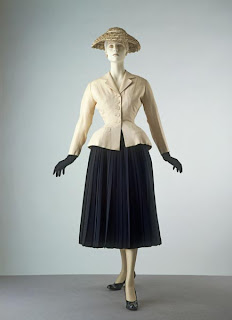

Cristobal Balenciaga was a designer that tailored great shape, sturctured volume and silhouette. In his 1959 evening coat, he featured the standout shoulder lines, hand-span waists, and belt, all were perfectly tailored and constructed.The current designer Nicholas Ghesquière for Balenciaga, captured his spirit and developed a similar look with a modern touch.


















 1930-1938
1930-1938



